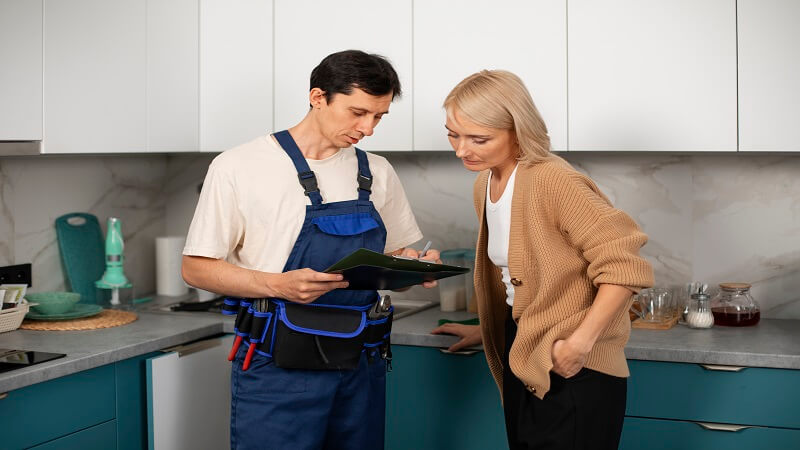Plumbing expenses often catch homeowners off guard, but the right strategies can help you avoid costly repairs and protect your wallet. Regular upkeep and wise choices go a long way—simple practices, such as early issue detection and fixture upgrades, play a significant role in lowering your long-term maintenance costs. If you’re considering improvements to your home’s plumbing, searching for water heater replacement near me can lead you to professional help and advice for upgrades or urgent fixes. Being proactive not only ensures a healthier plumbing system but also keeps your household budget in check.
Many homeowners overlook preventative care, only addressing issues when they become emergencies. This reactive approach often results in higher repair bills and water damage costs. By focusing on prevention and modern solutions, you can significantly reduce the financial burden that comes with plumbing mishaps.
Incorporating technology, staying vigilant with inspections, and budgeting for unexpected repairs all contribute to maintaining a home efficiently. Upgrading to water-efficient fixtures and leveraging smart plumbing devices can further maximize savings and peace of mind.
Understanding when to tackle minor issues yourself and when to call in a professional also protects your investment—knowing your limits ensures problems don’t escalate into costly disasters.
Regular Maintenance: The First Line of Defense
Staying on top of maintenance tasks is the most reliable way to keep plumbing costs low. Regularly check for drips, rust, and pooling water under sinks and around appliances. Clean your drains monthly with safe methods and avoid harsh chemical cleaners that can corrode pipes. Monitoring water pressure is crucial—pressure that’s too high, typically above 80 psi, can lead to leaks and breakages. Addressing minor issues promptly helps prevent damage that often leads to costly repairs down the road. According to experts at Family Handyman, even minor leaks should never be ignored, as they can worsen and waste valuable water over time.
Upgrade to Water-Efficient Fixtures
Upgrading to low-flow toilets, faucets, and showerheads is an effective way to significantly reduce your household’s water consumption while cutting utility costs. Products certified by the Environmental Protection Agency’s WaterSense program are designed to use at least 20% less water without sacrificing performance. For a typical family, these improvements can save around $380 per year and conserve thousands of gallons of water. Pairing these upgrades with a modern, energy-efficient water heater replacement can further enhance savings and ensure consistent performance across your home’s plumbing system. Beyond financial benefits, these eco-friendly choices help minimize water waste and ease the strain on local resources and infrastructure. Explore more about the potential savings on the EPA WaterSense statistics and facts page.
Embrace Smart Plumbing Technologies
Modern smart devices are transforming home plumbing maintenance. Smart water leak detectors, for example, send instant alerts to your phone when they sense a leak, allowing you to take immediate action. Advanced models can even shut off the water automatically, stopping damage before it spreads. Smart water monitoring systems track usage patterns, detect invisible leaks, and offer actionable insights, ensuring even minor inefficiencies are not overlooked. Investing in these tools can prevent thousands of dollars in water damage and provide the peace of mind that comes with knowing your home is protected around the clock. For more on emerging technologies, check CNET’s guide to smart water leak detectors.
Know When to DIY and When to Call a Professional
Basic plumbing tasks, such as unclogging drains or replacing washers, can often be handled by homeowners, saving on labor costs. However, it’s essential to be realistic about your skills and the complexity of the task. Taking on projects beyond your expertise—like pipe replacements or installing complex fixtures—could result in further damage, void warranties, or create hazardous situations. According to consumer advisor Clark Howard, DIY repairs are a great way to cut costs. Still, homeowners should seek professional help for any work involving their main water supply or where local building codes apply. Clark Howard advises families to consider do-it-yourself (DIY) repairs to save money, but cautions them to ensure they are capable of handling the tasks.
Invest in Preventive Measures
Preventive measures, such as adding pipe insulation, safeguard your home during freezing temperatures, helping to prevent burst pipes and costly water damage. This step is especially valuable in older homes or regions prone to severe cold. Pairing insulation with the installation of a pressure-reducing valve ensures steady, safe water pressure, protecting fixtures and appliances from unnecessary strain. If your system is aging, considering a timely water heater replacement can also enhance efficiency and reliability. Altogether, these proactive upgrades minimize the risk of plumbing emergencies and extend the overall lifespan of your home’s water system.
Plan for the Unexpected
Home emergencies can strike at any time. That’s why experts suggest earmarking 1–2% of your home’s value each year for maintenance and repairs. A dedicated home maintenance fund ensures you’re financially prepared for urgent plumbing issues, minimizing stress and delay when professional repairs are unavoidable. This foresight enables you to make informed decisions about repairs and materials, rather than rushing into potentially more costly fixes in an emergency.
Conclusion
By committing to regular maintenance, modernizing fixtures, embracing innovative plumbing technologies, and preparing for unforeseen issues, homeowners can effectively manage plumbing expenses and avoid the most costly repairs. Knowing which tasks can be handled independently—and when it’s best to call in a professional—helps maintain the safety and longevity of your home’s plumbing system. When it comes to major updates, such as water heater replacement, taking timely action can enhance energy efficiency and prevent larger issues down the road. Altogether, these proactive strategies not only deliver financial savings but also foster a more sustainable and worry-free living environment.

